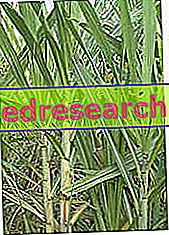Polycosanols are natural substances present in various vegetable waxes and in particular in sugar cane, from which they are extracted and marketed without medical prescription. From the chemical point of view, it is a mixture of long chain linear aliphatic alcohols (octacosanol, tetracosanol, esacosanol and others).

We must also not forget the frenetic pace imposed by the countless daily tasks, which make it much easier to take one or two tablets in the morning (naturally natural!) Compared to the commitment to revisit one's lifestyle in a more healthy way.
The cholesterol-lowering properties of policosanols are evidenced by a conspicuous scientific production, even if in this regard there are not lacking discordant results. Their ability to reduce blood levels of total cholesterol and LDL, while increasing those of HDL, is supported by much research, largely sponsored by the same Cuban company that sells policosanol. This data should trigger a first alarm bell; the independence of research with respect to commercial interests is in fact a very important requisite for assessing the reliability of a study. One of these, conducted in Germany in 2006, showed that after 12 weeks of treatment there was no significant difference in the levels of plasma lipids between the various groups, treated with placebo and with different dosage polycosanols, respectively (even at doses much higher than therapeutic ones). A result in clear contrast with what has been shown up to that point.
The same argument, of course, is also valid on the other front, because a company that produces statins or fibrates, would have every interest in demonstrating that policosanols are less effective than conventional drugs.
Based on all these considerations, the Italian health authorities advise a prudent approach, to be implemented by reserving the polycosanols only to patients with low cardiovascular risk profile, as adjuvants of the metabolic rebalancing in the presence of modest dyslipidemic forms (they can be used, for example, with the aim of bringing back slightly elevated cholesterol levels in a healthy individual). Considering them and proposing them as an alternative to drugs of proven efficacy, such as statins, could in fact jeopardize the health of those who are more exposed to cardiovascular diseases and need greater protection.



